Space
Space, also known as outer space, is the vast expanse that exists beyond the Earth and its atmosphere. It is a nearly perfect vacuum, with very low pressure and little matter. Space is a fascinating and mysterious place that has captured the imagination of humans for centuries.
Key Concepts
- Galaxies: Space is home to countless galaxies, each containing billions or even trillions of stars.
- Stars: These are massive, luminous spheres of plasma held together by gravity, and they are the primary source of light and energy in space.
- Planets: These are celestial bodies that orbit stars, and some may have conditions suitable for life.
- Moons: Many planets and even some asteroids have natural satellites, or moons, that orbit them.
- Asteroids and Comets: These are small rocky or icy bodies that orbit the Sun, and they can sometimes come close to Earth.
- Space Exploration: Humans have sent spacecraft and satellites to explore and study space, leading to many important discoveries.
Study Tips
When studying space, it's important to keep the following tips in mind:
- Understand the Scale: Space is incredibly vast, so use visual aids and comparisons to grasp the immense distances and sizes involved.
- Learn about the Solar System: Knowing about the planets, their moons, and other objects within our solar system is a good starting point for understanding space.
- Explore Beyond Our Solar System: Learn about other galaxies, stars, and exoplanets to understand the larger universe.
- Stay Updated: Space exploration and discoveries are ongoing, so staying updated with the latest news and discoveries can enhance your understanding of space.
Test Your Knowledge
Test your understanding of space with the following questions:
- What is the primary source of light and energy in space?
- What are the small rocky or icy bodies that orbit the Sun called?
- Why is it important to understand the scale of space?
Check your answers below:
.◂Science Worksheets and Study Guides Fifth Grade. Flowers and seeds
Study Guide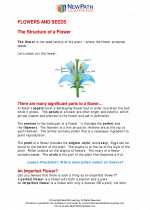 Flowers and seeds
Flowers and seeds  Activity Lesson
Activity Lesson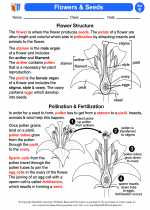 Flowers & Seeds
Flowers & Seeds  Worksheet/Answer key
Worksheet/Answer key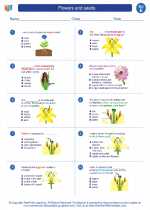 Flowers and seeds
Flowers and seeds  Worksheet/Answer key
Worksheet/Answer key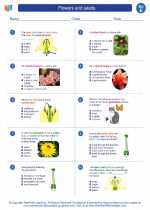 Flowers and seeds
Flowers and seeds  Worksheet/Answer key
Worksheet/Answer key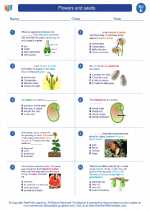 Flowers and seeds
Flowers and seeds  Worksheet/Answer key
Worksheet/Answer key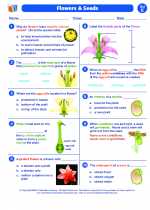 Flowers and seeds
Flowers and seeds  Vocabulary/Answer key
Vocabulary/Answer key Flowers and seeds
Flowers and seeds  Vocabulary/Answer key
Vocabulary/Answer key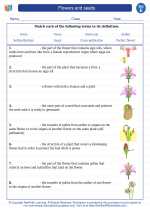 Flowers and seeds
Flowers and seeds 

 Activity Lesson
Activity Lesson
 Worksheet/Answer key
Worksheet/Answer key
 Worksheet/Answer key
Worksheet/Answer key
 Worksheet/Answer key
Worksheet/Answer key
 Worksheet/Answer key
Worksheet/Answer key
 Vocabulary/Answer key
Vocabulary/Answer key
 Vocabulary/Answer key
Vocabulary/Answer key

The resources above cover the following skills:
Life Science
All organisms have structures and systems with separate functions. Students can:
Develop and communicate an evidence-based scientific explanation of the role of different organs or structures that are important for an organism's survival - in both plants and animals